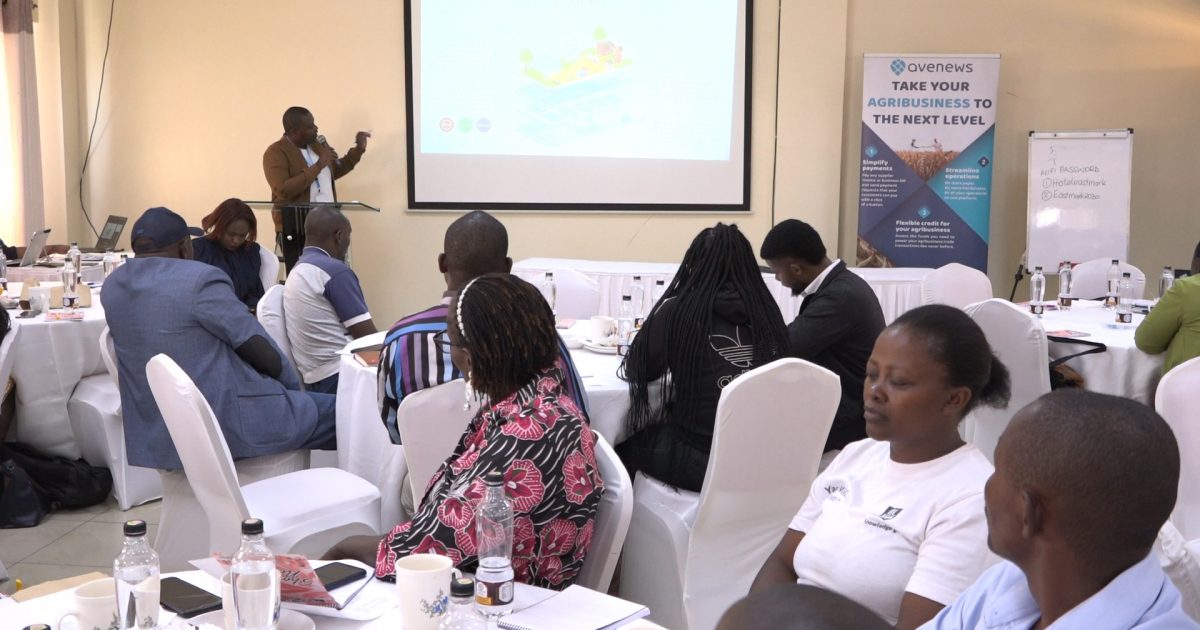A multinational financial technology firm Avenews Fintech, has launched a mobile platform to help Agricultural based Small and Medium Enterprises (Agri-SMEs) in Nakuru undertake financial transactions such as, digital payments, e-wallets and digital banking.
The company’s field officer Mr. Timothy Kibet indicated that they were partnering with various local financial institutions to enable Agri-SMEs in rural areas to access a wider range of financial services.
These include accessing affordable credit facilities efficiently even if they don’t have traditional banking services through mobile services provided by Avenews.
While noting that Agri-SMEs are the driving force behind Kenya’s economic growth, yet their financial needs often go unmet, Kibet said with Avenews, Agri-SMEs will be able to make informed financial decisions and unlock a credit facility that will enable them achieve their full business potential.
He assured Agri-SMEs that Avenews has been designed to make it easy for them to access the cash they need to purchase inputs and produce on a recurring basis.
“This is a reliable, affordable and speedy agribusiness financing service tailor-made for Agri-SMEs. Its effective use can increase crop yields, reduce costs and improve the lives of farmers,” Kibet said.
According to the International Financial Corporation (IFC), the significant time and cost required to price the risk and collateral for agribusinesses to access affordable financial products as well as the difficulty of serving farmers in rural and remote areas can be addressed by digitization.
Kibet noted that lack of sufficient collateral, high cost of credit, and informal business structure had rendered most Agri-SMEs ineligible for financing, a situation the field officer observed had been worsened by the Covid-19 pandemic.
“With reduced turnover and Covid-19 disruptions in the market and supply chains, many Agri-SMEs are unlikely to attract affordable and quality credit under the traditional arrangements,” Kibet added.
The field officer said making payments for supplies and produce, in a timely and cost-effective manner, is a challenge that agribusinesses are constantly trying to navigate and that the app will address.
The application which can be downloaded from the Google Play Store and Apple’s App Store provides a one stop shop which enables agribusinesses to manage all their transaction and trade operations such as making inventory, orders, and payments and raising invoices.
Speaking during its launch in Nakuru the official explained that the platform provides digital infrastructure that enables financial institutions to access agribusiness data that previously was out of reach hence reducing risk of borrowing and distributing financial services to agribusinesses across the supply chain.
“Every interaction on the platform is stored in a verified and vetted asset on the Avenews block chain, creating a digital economic identity for every agribusiness across the supply chain, he said.
Avenews is already working with Africa’s largest banking groups to bridge their gaps with the agricultural industry and finance their agricultural business customers across the continent,” explained Mr. Kibet.
The app is equipped with a financial management tool that enables advanced ML (machine learning) algorithms to process hundreds of data points and create personalized financial products – including access to digital credit.
He said in Sub-Saharan Africa, most of the agriculture ecosystem receives and makes payments in cash, adding the app was part of efforts by various players to digitize financial transactions in agriculture.
Kibet said these solutions allow Agri-SMEs to deliver value, improve productivity, access financing and provide inclusive and sustainable solutions.
“As Kenya’s Financial Technology space continues to grow, it is important that all stakeholders understand the immense potential of digitization. The complexity of Kenya’s agricultural supply chain requires innovative industry-specific solutions,” he noted.
The World Bank Global Findex Database indicates that less than one in six individuals who receive agricultural payments in Sub-Saharan Africa do so through an account (at a bank, non-bank financial institution, or a mobile money account).
Moreover, among the farmers in the region who sell a portion of their produce in the market, only 17 per cent save in a formal financial institution and around 10 per cent borrow from one.
Kibet indicated that digitization of agribusiness payments is a pathway to broader financial inclusion.
In addition, he added, digitalization plays a vital role in easing agribusiness transactions and facilitating the extension of financial products to more businesses across counties, while better managing their vulnerability to shocks.
The field officer observed, “Digitalization contributes to making Africa’s agricultural supply chains more efficient and resilient by reducing the cost of payments and bringing better visibility to how and when agribusinesses are paid.”
According to the US-based Heifer International survey titled ‘The Future of Africa’s Agriculture: An Assessment of the Role of Youth and Technology’ that was done last year, the best way to engage youth in agriculture in Africa is through technological innovation (39 percent), government support for young farmers (32 percent) and inclusion/adoption of youth in agriculture policy (21 percent).
By Anne Mwale and Dennis Rasto





